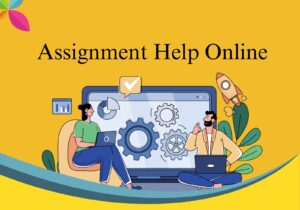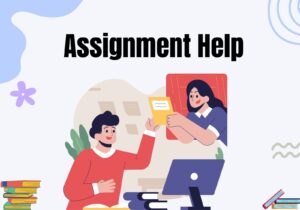Introduction
Reading comprehension is a skill that directly affects academic success, career growth, and daily decision-making. It is hard for most students to recall and understand what they read, therefore struggling during exams, assignments, and learning in general. Mastering reading comprehension not only fosters academic success but also leads to the acquisition of critical thinking and analytical skills.
For students seeking assignment help, enhancing reading comprehension can really make it easy to undertake research and writing tasks. This guide is a move in the right direction with practical and useful ways of enhancing reading comprehension to enable students to read, comprehend, and implement information effectively.
1. Being Aware of the Reading Comprehension Basics
Prior to exploring strategies, an understanding of what reading comprehension is matters. It entails:
- Decoding words – Identification and comprehension of vocabulary.
- Fluency – Reading smoothly without too much pausing.
- Retention – Recalling and storing information.
- Inference – Making logical connections between ideas.
- Critical thinking – Analyzing and evaluating the text.
Effective comprehension skills are developed by practice, concentration, and with the correct techniques, particularly when doing assignments and research work.
2. Active Reading Strategies
Active reading increases reading interaction with the text, resulting in greater comprehension and retention. Some effective active reading techniques are:
2.1 Previewing the Text
Prior to reading, skim over the material for a few minutes. Examine headings, subheadings, key words, and summaries. This technique provides the mental map to comprehend the material.
2.2 Asking Questions
- Ask questions like the following while reading the text:
- What is the main idea?
- What evidence is used to make the point?
- How is it connected to previous knowledge?
2.3 Note-Taking and Highlighting
Highlight with a highlighter or notes. Summarizing in margins or another book helps to understand.
2.4 Summarising the Material
Summarise main points after reading in own words. This exercise helps with improved retention and understanding.
3. Building Vocabulary
Limited vocabulary can obstruct comprehension. Increased vocabulary makes it easier to read complicated texts, especially in schools where technical terms rule.
3.1 Context Clues
Recognize unknown words and attempt to comprehend their meaning from context.
3.2 Using a Dictionary and Thesaurus
Enhance readership by making frequent use of dictionaries.
3.3 Learning Word Roots and Affixes
Knowledge of prefixes, suffixes, and roots can make unknown words readable.
4. Increasing Concentration and Focus
Distractions reduce comprehension, making it harder to grasp key concepts. Seeking assignment help can provide structured guidance, allowing students to focus better. Increased concentration during reading enhances retention and comprehension, leading to improved academic performance.
4.1 Creating a Distraction-Free Zone
Identify a quiet area with few interruptions.
4.2 Applying the Pomodoro Technique
Read in concentrated short periods (e.g., 25 minutes), and then break.
4.3 Mindfulness and Deep Breathing Exercise
Pactices such as deep breathing enhance concentration and mental strength.
5. Enhancement of Reading Speed Without Sacrifice on Comprehension
Effective reading should never come at the expense of comprehension. Reading speed techniques are:
5.1 Skimming and Scanning
- Skimming: Browsing through a text trying to gather the gist.
- Scanning: Locating specific information in a text.
5.2 Using a Pointer or Finger
Focusing the eyes using a finger or pen keeps attention and increases speed.
5.3 Reducing Subvocalisation
Decreasing internal vocalisation can enhance reading speed without reducing comprehension.
6. Reading Different Types of Texts
Reading different types of texts enhances understanding across disciplines and writing styles. Recommended reading materials are:
- Academic journals – Practice analytical reading ability.
- Novels – Practice storytelling comprehension.
- News articles – Practice critical thinking skill.
- Research papers – Practice knowledge of formal writing structure.
7. Developing Critical Thinking Skills
Critical thinking is required to read complicated texts. Techniques are:
- Comparing and contrasting various perspectives.
- Assessing credibility of sources.
- Analyzing arguments and detecting bias.
- Making connections between texts and real situations.
8. Leveraging Reading Comprehension with Technology
Technology can facilitate learning and knowledge. Useful technologies are:
- Annotation-capable e-books.
- Text-to-speech software for ear-learning.
- Web-based summarizer tools for summarizing key points.
- Dictionary software for word definitions in real-time.
9. Regular Practice to Develop Comprehension Skills
Regular practice leads to improvement that can be for a lifetime. Recommendations are:
- Setting a daily reading goal.
- Participating in reading groups or discussion forums.
- Writing remarks on what one reads.
- Performing comprehension practice and tests.
10. Why Improved Reading Comprehension Equals Academic Success
For assignment-seeking students, improved comprehension translates to:
- Faster research and retrieval of information.
- Improved essay writing and analysis.
- Improved grasp of complex ideas.
- Improved performance on coursework and exams.
Conclusion
Reading comprehension is an ability one should gain, resulting in academic achievement and lifelong learning. With active reading strategies, vocabulary building, enhanced attention, and interaction with various texts, students can surprisingly gain comprehension skills. Moreover, the use of technology and practice every day can assist students in greater understanding and memory.
For the struggling students in achieving academic tasks, Assignment in Need (assignnmentinneed.com) provides professional advice to support such an effort so that assignments and research assignments are handled confidently and briefly.






Be First to Comment